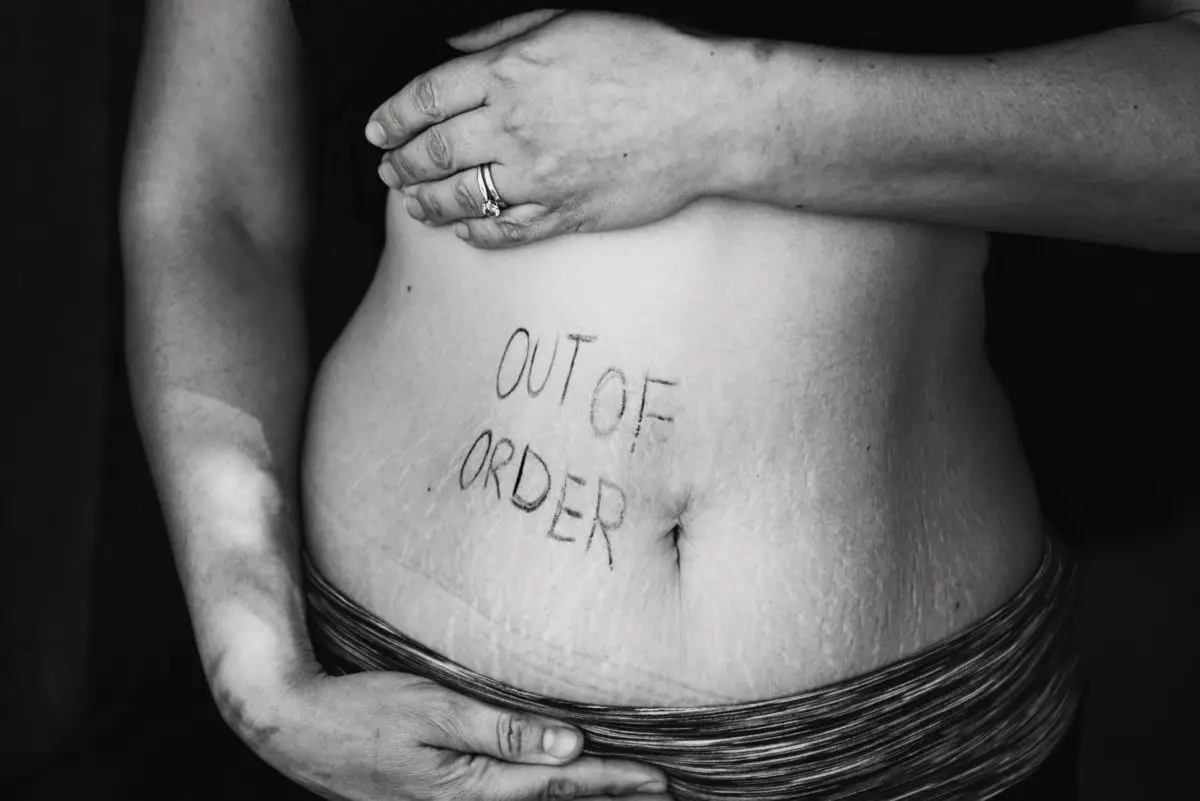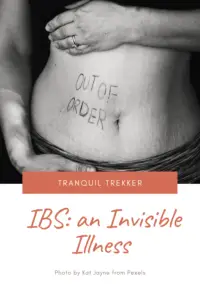It starts with a characteristic *grumble–grumble* in the tummy, like you might feel when you’re getting hungry…but not quite. It progresses to sharp pains and paralyzing cramps that can spread from your abdomen to your feet…then there’s the nausea, the cold sweats, the chills, and sometimes what feels like hours doubled over with stomach pains…and then…as quickly as it comes on, the attack is relieved…you may even feel hungry…
You just had an IBS attack!
I’ve mentioned several times that I struggle with this chronic condition, otherwise known as Irritable Bowel Syndrome. This is a unique problem. It isn’t considered a disease, per se, but more of a disorder. Basically, when people suffer with IBS, it means their bowels don’t work correctly, and it isn’t understood why. Doctors usually give you this diagnosis when they can’t find anything else wrong after other tests are completed.
Some people don’t consider IBS to be a “real” ailment at all. I’ve heard several claim it’s the “diagnosis of doctors who are too lazy to figure out what’s really wrong with you”. Symptoms and severity differ for each person (and what each individual suffers can vary over the course of time). IBS is complicated. 😛
What is Irritable Bowel Syndrome?
IBS comes in three categories: “Predominantly C”, “Predominantly D”, or an unpredictable, varying mixture of the two. I won’t get into the dirty details, but since this syndrome focuses on the bowels, I’m sure you can figure out what the C and D stand for. 😝 I also won’t TMI you with which one I deal with, as it isn’t really relevant, and people who suffer with the disorder can switch between the types throughout their life…I did.
I think part of the reason I struggled so much with the restrictive, low-carb diet I tried several years ago is that my IBS already limits what I can eat, so the diet just exacerbated that even more. In addition, some “Paleo/Keto-friendly” foods aren’t well tolerated by my testy tummy (like dark chocolate, or certain types of super-fibrous veggies). To contrast, many “naughty” foods, such as bread, my body loves. 😝 (Fortunately, my stomach will tolerate whole-grain breads, so I can compromise with those). 😀
What IBS is NOT?
As I mentioned before, IBS isn’t considered to be a disease…exactly. It isn’t as acute as Celiac, Crohn’s or Inflammatory Bowl Disease, though the symptoms can be severe (I consider myself blessed that mine rarely are). They don’t actually know what, exactly it is. It isn’t an auto-immune issue, it isn’t gluten intolerance (I’ve mentioned before that my body loves whole-grain carbs, for the most part). It isn’t caused by an allergic reaction either. Some people with IBS can be gluten or lactose-intolerant, but those are separate issues–I am not. For the most part, these foods don’t bother me at all, though there are one or two options in these categories that I’ve learned to stay away from.
IBS Trigger Foods
This disorder makes food choices complicated. Symptoms, severity and food sensitivity differs from person to person, though some foods are considered “trigger foods” as they, generally, “trigger” negative responses. These include onions and celery, though I can eat these foods if they’re dried, or well-cooked (the process must change the makeup of the foods so they are easier to digest). I recently learned that both almond milk and apples are frequently considered to be “trigger foods”. Nobody tell that to my stomach, as I’ve been eating both for years with no problems! 😛 Did I mention symptoms vary?
One of my “triggers” is spices. Not spicy food, per se, but herbs. Because of this, I tend to eat and cook my food pretty blandly. A perk of this, I have noticed, is that it enables me to enjoy the actual flavor of the food I’m eating, rather than whatever spice/essence has been added to it.
Another example of how complicated IBS can be, I can drink milk and eat cheese without stomach problems (though it affects my sinuses). But if I eat or drink things with a lot of heavy cream in them, my stomach may protest. 😛 I also have to be careful with honey. I can eat it, but only in small amounts.
How to treat IBS
I have seen a reduction in my symptoms in recent years. Some of this is due to learning what my trigger foods are, and avoiding them. I believe a lot of it is also due to reducing stress. An example of this stress reduction reducing one of my food sensitivities is that since decreasing my stress level I can now drink orange juice. One glass used to do me in. Now, I happily enjoy it every morning! I have also started a daily regimen of probiotics, which has been shown to help reduce IBS symptoms.
I find treatments such as stress reduction and healthy bacteria to be so interesting because, clearly, this is not JUST a physiological ailment. If my symptoms were purely based on an allergic or immune response, I should react to the same foods all the time. Because my response to them can vary based on the presence of other stimuli, other factors must be at play.
More and more, effective medications are being found to treat this disorder. For now, I’ve chosen to not use them. I’ve stated before that I’ve become disillusioned with modern society’s over-reliance on “magic pills” to fix everything. I don’t shun modern medicine, but this is one arena where mindfulness and behavior changes can bring positive improvement, sometimes without the use of drugs at all–though the need for medication varies by person as well. (To be clear, I don’t consider a probiotic to be a “magic pill”. Namely, because it is righting the actual issue that experts believe is playing a part in causing Irritable Bowel Syndrome, to begin with, that of inaccurate bacteria growth within the gut.)
Gut health and IBS
The gut is known to be a common place we all hold stress. When I’m under pressure, I regularly notice stomach cramps as I unconsciously hold tension in my abdominal muscles. This can trigger an IBS attack. If my body is reacting to a food I’ve eaten, there isn’t much I can do. However, if my symptoms are due to tension (and I have learned to feel the difference) I have literally stopped an IBS episode using nothing but relaxation and deep-breathing techniques. How empowering is it when we can see real, positive changes in our health just by changing factors that we have control over?
A connection between IBS and anxiety?
There is a known correlation between IBS and anxiety, though it isn’t fully understood. (I hear my Research Methods prof in the back of my head right now saying, “correlation is not causation!”) While an exact link between IBS and anxiety has not been successfully proven, it is not unusual for people who suffer from IBS to also struggle with an anxiety disorder or vice versa.
Anyone who reads this blog regularly knows that I wrestle with both. Researchers don’t know why this occurs, but they have some ideas:
-
-
- It may be that the body is lacking nutrients as IBS can cause the gut to not absorb them from food well. More and more, problems in the gut (and subsequent nutritional deficiencies) are being linked to numerous physical and mental health issues, even if they once appeared seemingly unrelated.
- It could also be that the stress brought about by anxiety causes changes in the gut flora, mini-muscle contractions, or a more acidic gut environment, all of which can then lead to the IBS symptoms.
- It may be that the body is lacking nutrients as IBS can cause the gut to not absorb them from food well. More and more, problems in the gut (and subsequent nutritional deficiencies) are being linked to numerous physical and mental health issues, even if they once appeared seemingly unrelated.
-
Invisible Illnesses are Real
IBS is different for every person who suffers from it. It’s complicated and it’s hard to explain. The bottom line, this condition is a very real part of the lives of millions of people around the world, and it can hinder life greatly. I hope, one day, they find a cure for this life-altering and chronic condition, but until they do, I hope to continue employing the methods mentioned above to decrease the severity and frequency of my symptoms.
Do you struggle with an invisible illness like IBS? Tell me about it in the comments!
Did you enjoy this post? Pin it!
Like what you read here today? Please feel free to leave a comment, like or share this post! Add your email at the bottom of the page, or the sidebar to the right, to be notified when a new post is published. By signing up for the email list, you will also receive a free copy of the Tranquil Trekker’s Top 10 Tips of Trekking Do’s and Don’ts!
You can also follow the blog on social media by clicking the links below!


3 thoughts on “IBS: an Invisible Illness”